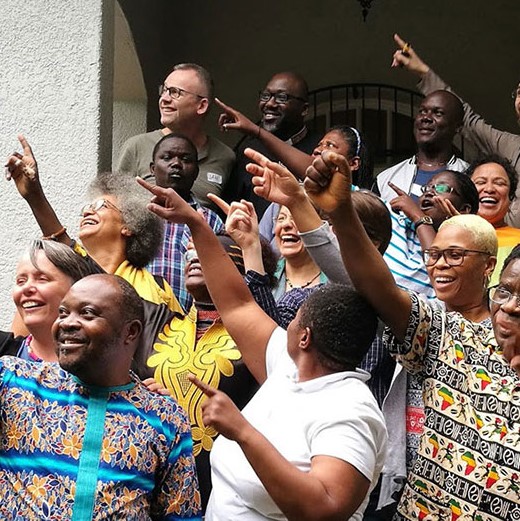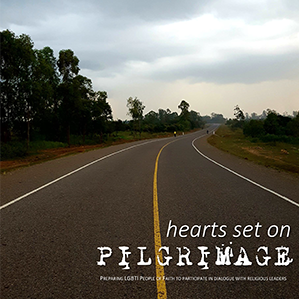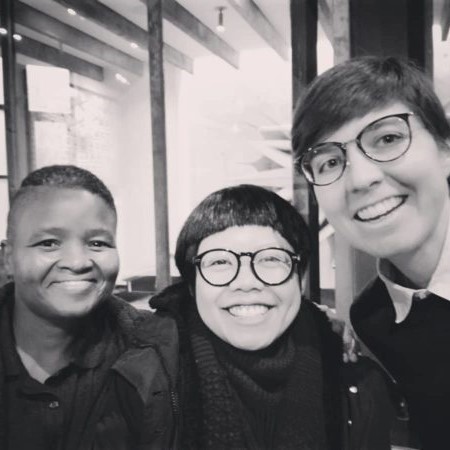On September 28th, 2020, the Global Interfaith Network (GIN-SSOGIE) hosted a side event during the 45th session of the UN Human Rights Council (HRC) on “The Impact of Faith on LGBTI People During the COVID-19 Pandemic”, co-sponsored by the Permanent Mission of Fiji and the Delegation of Canada to the United Nations. The event was co-organised with Act Alliance, Act Church of Sweden, COC Netherlands and ILGA World.
This side event was an important opportunity to listen to various speakers from around the world, sexual and gender minority leaders of faith and allies. It showcased examples of harmful conservative rhetoric and practices, as well as positive examples of faith-based groups rising to the occasion, and seizing the opportunity to build a more just and inclusive world, in the face of the global COVID-19 pandemic.
Furthermore, the health crisis related to the worldwide spread of the COVID-19 has affected all of us, and cast into sharp relief the added vulnerability of marginalized populations, including both individuals and families. The pandemic has been used as a tool to enhance divisions amongst global populations, with the sexual and gender minority community targeted as the reason for the spread of the virus around the world. We have seen homophobic and transphobic faith-based rhetoric being spread in all parts of the world and amongst various faith traditions. Anti-rights messaging also has been deployed by some political leaders, demonstrating the extent to which, in some contexts, fundamentalist religious groups are entangled with political power.
This side event provided information and discussion on the diverse realities of religious LGBTI people who find themselves in struggling movements and working to find their place. GIN believe it is crucial to continue to bring these voices into the UN system, which seeks to protect and respect the lives of all human beings. GIN aimed at fostering a UN space in which all voices were heard, and all human beings were seen, protected and respected. This event highlighted the marginalization of sexual and gender minority movements that fall outside the divide between faith-based struggles and sexual and gender minority struggles, and noted the consequences of the marginalization of LGBTI people of faith for both the faith-based and LGBTI movements.
Speakers from around the world talked about the situation in their respective contexts, on behalf of their organizations. The event was moderated by Caroline Ausserer, a journalist from Germany, who divided the event into two rounds. The first round addressed the main question “what is happening now and what does that have to do with the LGBTI people?” It focused on regional and personal experiences and the impact of harmful conservative practices. The second round discussed the ways to resist it, how to face the growing authoritarianism and fundamentalism, as well as how to bring about inclusive systemic change. For each of the panelists, the moderator proposed a specific question. By the end of the event, the moderator offered a time for questions and answers that were made by the co-sponsors and partners of the event. Victor Madrigal Borloz, the UN Independent Expert on SOGI, presented the concluding remarks of the event.
GIN seeks to counter the narrative that faith and LGBTI rights aren’t necessarily in opposition to one another, which has been predominant in regional and international human rights fora for a number of years. In this respect, GIN seeks to provide continuous information and discussion on the diverse realities of religious LGBTI people who find themselves in struggling movements and working to find their place. We aim to celebrate inclusive faith traditions from around the world, especially from the Global South, and to promote inclusive faith-based messages in support of human rights for all individuals including at the UN.
GIN also seeks to highlight the marginalization of sexual and gender minority movements that fall outside the divide between faith-based struggles and sexual and gender minority struggles and note the consequences of the marginalization of LGBTI people of faith for both the faith-based and LGBTI movements. With this in mind, we will continue building alliances with CSOs and FBOs to develop faith-based messages in support of sexual and gender minority rights as well as with Permanent Missions at the UN (from different parts of the globe).
During the 45th HRC session, GIN with the collaboration of Kakay Pamaran, member of the GIN board, also presented a statement during the interactive dialogue with the indigenous special rapporteur. GIN welcomed the report of the Special Rapporteur and highlight that in spite of the Indigenous Peoples’ Rights Act of 1997, the unimaginable violence committed against the Lumad of Mindanao and other indigenous communities in the Philippines continues unabated.
“The ecumenical movement will continue to exhaust all possible efforts to support indigenous peoples and their culture, spiritualities, rituals, and faith traditions—ensuring their right to self-determination and their traditional ways of knowing and being. This, for many of indigenous people is an act of faith to the God who is known by many names and an act of repentance for the many historical atrocities committed against them. Under a political climate that demonizes the struggle of the Indigenous Peoples and defenders, this situation has become worse. The church workers, Bishops and Pastors continue to be vilified, red-tagged, and killed for their humanitarian work and ministries.”
You can watch the video of the side event here, on our YouTube channel :
https://www.youtube.com/watch?v=Qo7dM3r1Olc&t=373s&ab_channel=GINSSOGIE
You can watch the video of the statement here, on our YouTube channel :
https://www.youtube.com/watch?v=LAk8luRKrZg&ab_channel=GINSSOGIE
[download id=”7803″]





